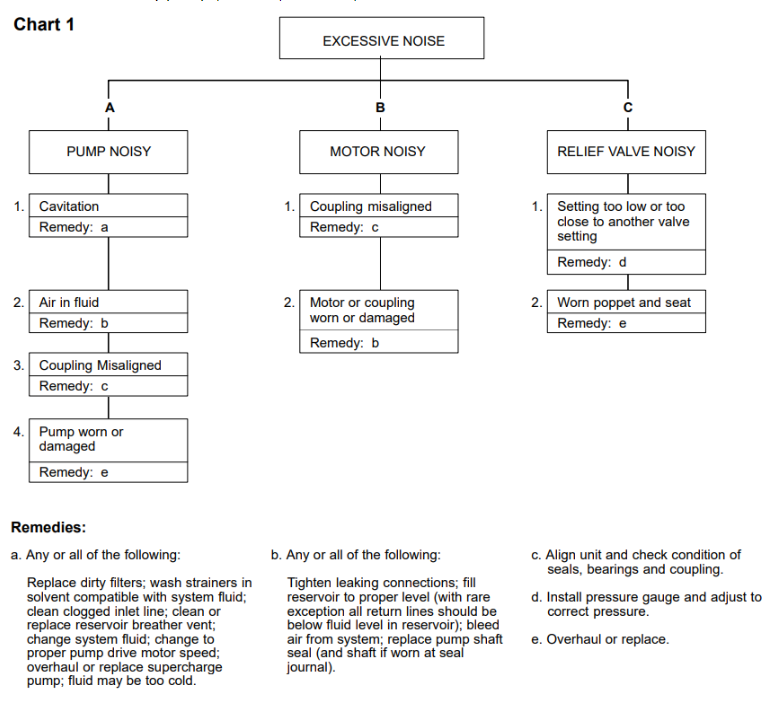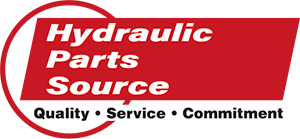What’s That Sound? Common Causes of Noisy Hydraulic Pumps and Valves
If you hear an unexpected noise coming from your hydraulic system, you may be concerned, and for good reason.
We expounded on 3 causes of noisy hydraulic pumps in a previous blog, but believe it’s worth repeating, and digging into a little further by including valves as the potential source of noise.
Take a look at our video on the topic, and then continue reading to get useful answers about the unexpected noises coming from your hydraulic system.
Unexpected or prolonged noises coming from valves and pumps may be signs of serious problems that need immediate attention to prevent damage or even system failure.
For example, a noisy pump may mean that air bubbles have formed in hydraulic fluid, causing cavitation, or that air leaks into the system through seals and fitting, causing aeration. Both issues can lead to system failure.
The moral of the story is do NOT ignore new or increasing noises. Be vigilant when noises spring up, especially if noise reduction efforts have been made.
In the Eaton-Vickors report, Noise Control In Hydraulic Systems (2002), engineers break down the 1970’s publication “More Sound Advice,” in which techniques are considered to reduce noise conscientiously with a control program.
However, there’s a difference between general, overall noise and sudden or increasing noise. If the latter is coming from pumps or valves, there may be issues that need to be addressed.
Let’s look at a few specific noises that can pop up from pumps and valves and the possible causes that may need immediate attention.
Hydraulic Pump Noises and Causes
Cavitation and aeration are nothing to be trifled with. As already mentioned, both of these issues can be signaled with accompanying noises and may lead to serious hydraulic system problems.
If a pump is making new or prolonged whining, metallic, chattering, or hissing noises, do some problem-solving to find the cause of the sound.
Here are a few sounds to look out for and possible causes.
High-Pitched Whining
A high-pitched whining sound is a red flag for cavitation. The whining noise, or in some extreme cases a severe rattling, can happen when a drop in pressure causes cavities to form in the fluid and then rapidly implode. Causes of cavitation include blockages in fluid lines, filters, excessive viscosity, or pump rotation speed.Oil aeration problems can also cause the pump to produce a high-pitched whining noise. Aeration is like cavitation but is more erratic. Aeration happens when air bubbles are introduced to the fluid from couplings or negative pressure that draws air under hydraulic seals. This creates an uneven distribution of air in the hydraulic system and can lead to increased wear, damage to seals, and contamination.
Metallic Noises
Grinding, whirring, roaring, rattling, and other metallic noises, especially when accompanied by excessive vibration or temperature increases, could mean pump mechanical issues caused by misaligned couplings or internal wear on components.Chattering
Chatter can be a sign of turbulence in the water pipes close to the water pump or problems with the pressure control switch. If there is a check valve close to the pump on its inlet, a leak in that check valve may be the cause of chattering.Hissing or Whistling
Hissing or whistling sounds are usually related to hydraulic pump relief valves. A constant hissing sound could mean a relief valve is set too low or stuck open and continually releasing pressure. An erratic whistling sound could also mean a relief valve is set incorrectly or damaged.Troublesome Relief Valve Noises
Damage to valves caused by pressure and contamination could spell trouble to the hydraulic system, and specific noises often accompany them.
Be aware of sudden or worsening sounds coming from pressure relief valves. These could signal that action needs to be taken or that parts or systems may be at risk.
Pressure relief valve noises may include the following:
- Chattering - Damage or erosion from environmental dirt and debris can block the valve from fully closing, causing chattering when the valve doesn’t completely open and closes rapidly
- High-pitch squeal – When a pressure relief valve is stuck, the pressure may build within a water tank and create a high-pitched noise
- Vibration noises –Vibrations can be caused by fluid pulsations brought on by fast flow rates at the valve outlet
Troubleshooting Help From HPS, Eaton-Vickers
According to Eaton-Vickers’ Hydraulic Hints and Trouble Shooting Guide, excessive noise means wear, misalignment, cavitation, or air in the fluid.
For example, the guide continues, contaminated fluid can cause a relief valve to stick and chatter. These noises may result from dirty filters, fluid, high fluid viscosity, excessive drive speed, low reservoir level, loose intake lines, or worn couplings.
To troubleshoot noisy pumps, motors, or valves, Eaton-Vickers offers this chart:

At Hydraulic Parts Source, we are familiar with troubleshooting and advise regular maintenance on motors, relief valves, and pumps, as well as setting relief valves correctly.
Noisy relief valves or pumps are often a symptom of a greater problem, and in most cases, looking at the “why” behind it will lead to the proper solution.
Some quick troubleshooting actions include:
- Check filters and strainers, looking for metallic debris
- Determine the absolute pressure available (NPSHa) and required (NPSHr) for the suction port of the pump
- Check oil viscosity and ensure it is appropriate for the application and climate conditions
Hydraulic Parts Source is a leading fluid power remanufacturer, and we’re ready to serve you. Contact us today to experience OE quality for a fraction of the time and cost by calling (866) 985-8401 or get a quote by emailing sales@hydparts.com.

